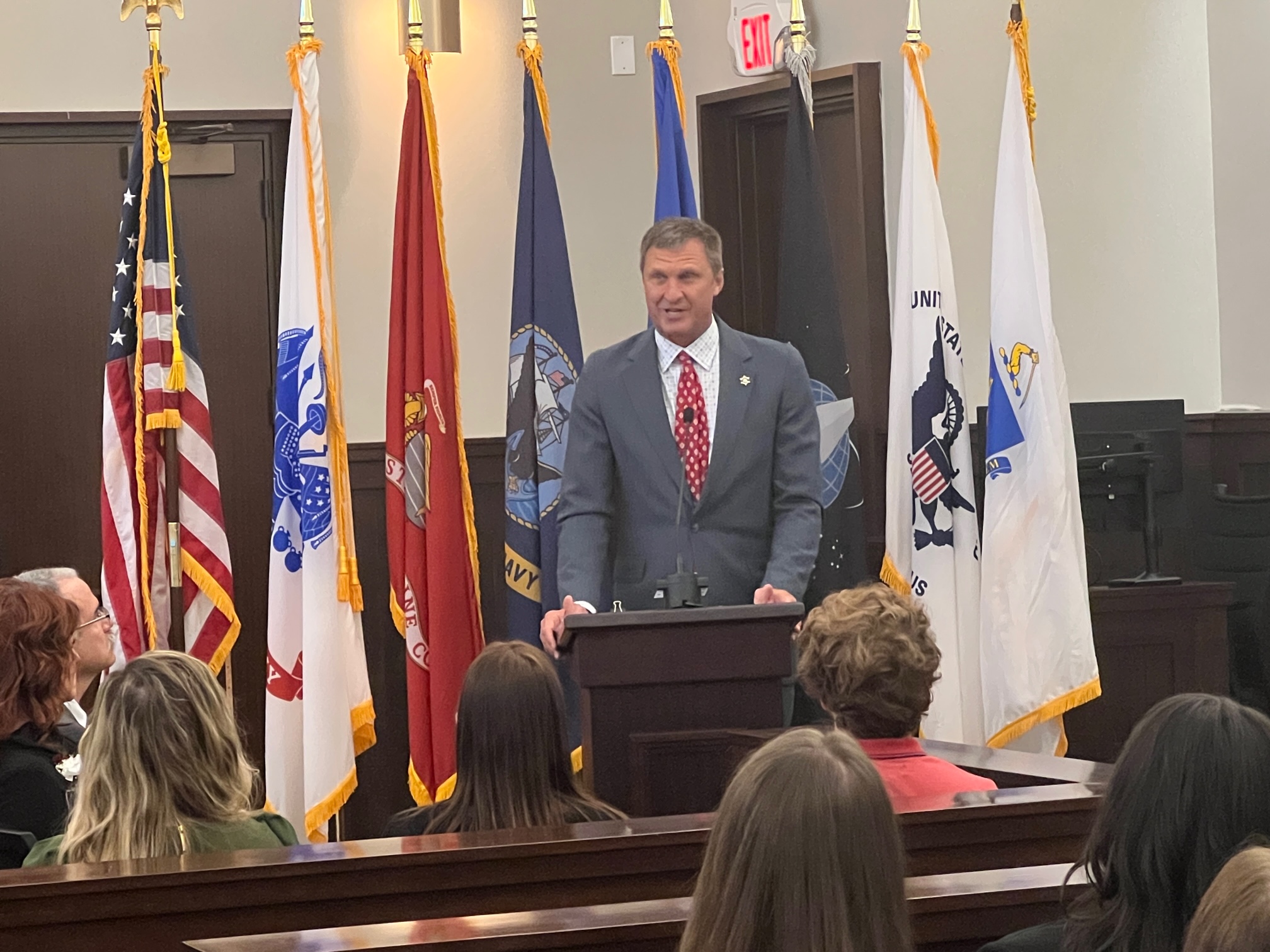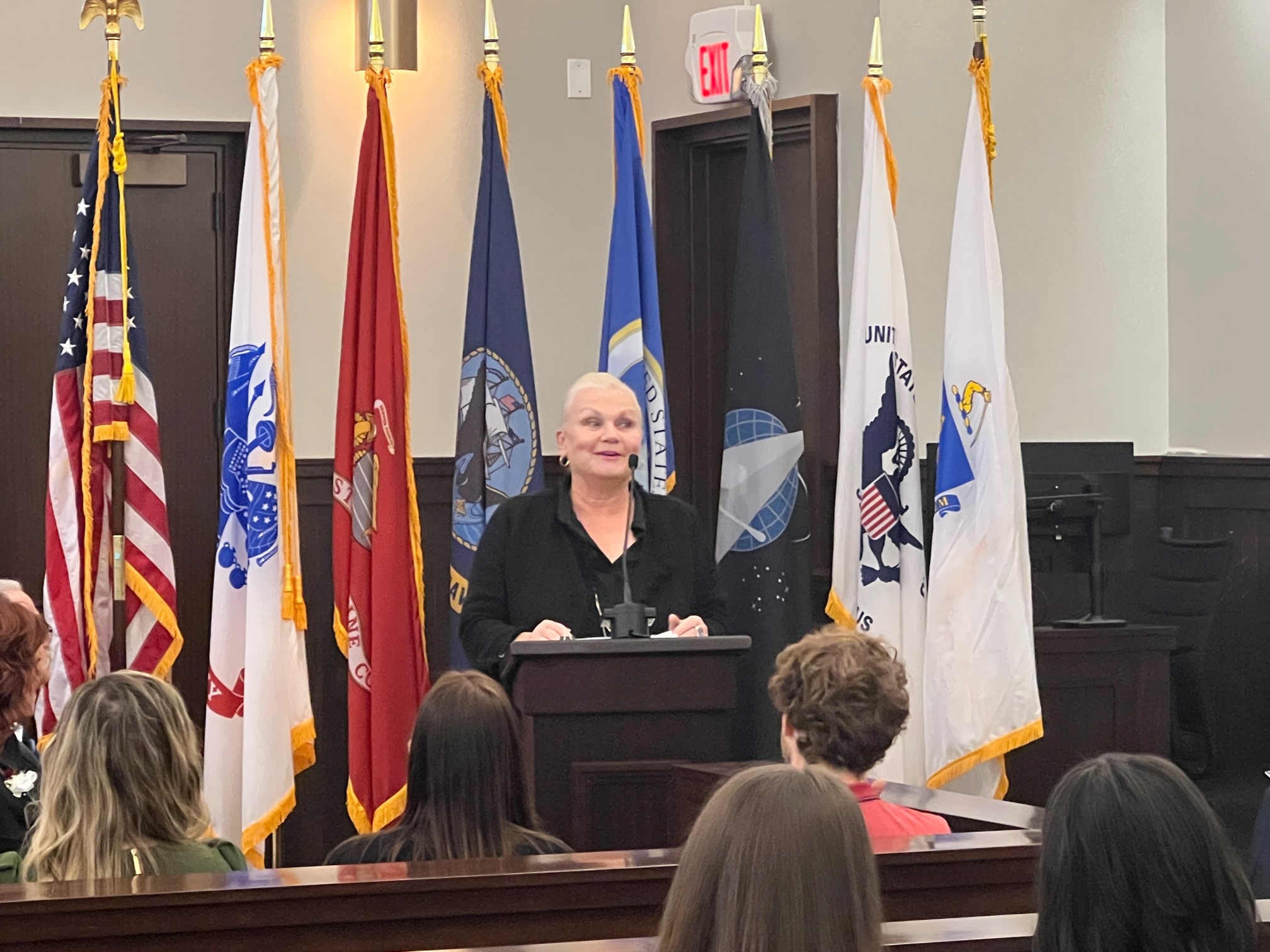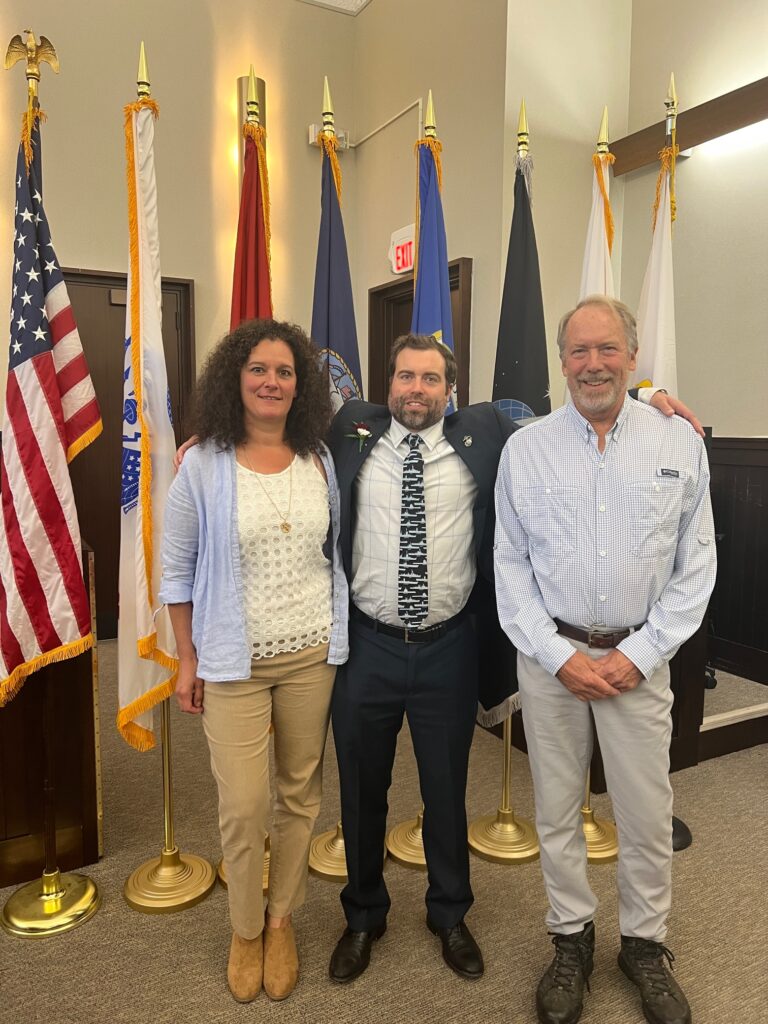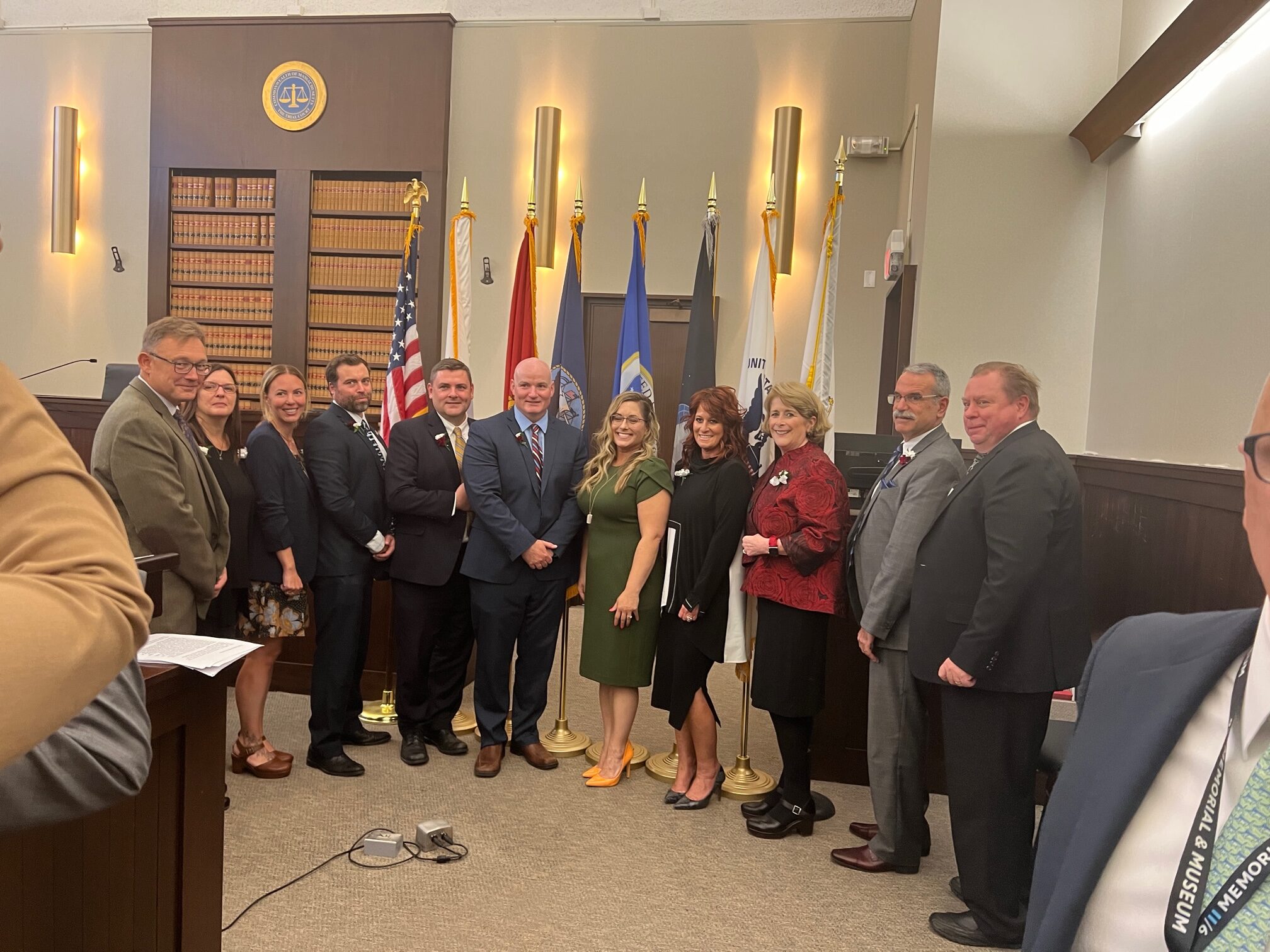
We recently attended the grand opening of the new Central Massachusetts Veterans Treatment Court, held at the Gardner District Courthouse.
Invited to this grand opening were many local and statewide political figures, including our State Representative, Kim Ferguson, Worcester County Sheriff Lew Evangelidis, and many more. We weren’t one of them, and consequently we weren’t invited, because seats were scarce, but we showed up anyway.

We told security that we didn’t have an invitation, and subsequently were seated in the much less crowded Zoom Room, where we could watch the action on a TV screen. That worked great for about half the ceremony, which is when the Zoom system stopped working. At that point we had to stand in the hall to hear the speakers.

We made our way in to the Gardner District Court chambers because our oldest son, Jay Marshall Shenk, now an Assistant District Attorney, was involved in setting up this new Veterans Treatment Court.
Our son Jay Marshall is a Marine veteran (as is his brother Maxwell), and he can personally relate to the issues that plague people who have served and fought for our country, which is one of the reasons why he was chosen to participate in this new court.
We were proud to see him specifically called out for his service by Joe Early’s office–he is not only a veteran, but was a Marine during a time of war, stationed in Fallujah, Iraq. For Jay and I, this was the most worrisome, nerve wracking time of our lives.
Although we personally tend to lean towards a ‘law and order’ approach to crime, we fully support the mission of this ‘treatment’ court.
Its goal is to help veterans who are involved in the criminal justice system while simultaneously struggling with the issues that plague many veterans upon returning to civilian life. Post Traumatic Stress Syndrome (PTSD) is absolutely real, particularly for people who have been in combat, and this makes veterans particularly susceptible to drug addictions, mental health issues, and becoming obsessed with problems that seem insurmountable, yet are easily solved. All of these issues can, and often do, lead to criminal activity.

Being in combat together makes people closer and dependent upon each other, and requires constantly being alert in life and death situations. This is far, far removed from everyday life back home. It’s the transition, from a life full of intensity, regimentation, and danger, to a normal, everyday life, that perhaps causes the mental health and drug addiction issues, or perhaps it’s simply having people trying to kill you that causes the issues.
Of Jay Marshall’s closest friends from the Marines, many have drug issues, some are or have been in jail, and more than a few have passed away. Our son is one of the lucky ones, who was able to return to civilian life, not unscathed by the experience, but able to deal with it. Many others are not so lucky.
The purpose of this Veterans Treatment Court is to help veterans adapt to a normal, civilian life, rather than sending them to jail. The prospect of going to jail might be a deterrent for some, but landing in jail is certainly not going to help veterans adapt to civilian life–it just gives them more issues to deal with, from finding a job to mundane issues like who will feed the dogs at home.
The goal is that, when possible, for certain crimes including drug related offenses, to divert the veterans away from punishment, which would probably make things worse, and instead into something that will help them adapt and do better, such as therapy and job training. Most people who end up in the criminal justice system have things in their background that got them there, but the experience of veterans is unique, and we owe them second chances because of what they did for us by serving our country.
Your first thoughts might very well be, “Great. More criminals released so they can commit more crimes”, but this isn’t yet another case of lax enforcement of laws. In fact, the requirements for people in this track are strict. This is a serious attempt to acknowledge the special stresses experienced by veterans, and to help them adapt and thrive in civilian society.
Here are some facts about how this works:
First off, going into this treatment plan is voluntary– veterans are offered the choice to accept an 18-24 month probation period, in lieu of a jail term. Now you might think that it’s not much of a choice, given that the other option is jail, but nevertheless it’s quite a commitment for a fairly long period of time.
During this probationary time period, from the Mass.gov website: “Abstinence from drugs and alcohol, mandated treatment, swift accountability, and weekly interaction with the court are requirements of the Veterans Treatment Court.” That’s strict, but it’s also easier said than done, so the other side of this is that the veteran gets a personalized treatment plan, the most important piece of which is a fellow veteran volunteer who will be an advocate for the veteran, a role model, an advisor, and a mentor. Importantly, this veteran volunteer also facilitates interaction and coordination with the already existing veterans programs and organizations, both local and national, which, if you can figure them all out (this is where the advisors come in), provide much needed help for veterans.
The hope of the new Veterans Treatment Court is that all veterans involved in the criminal justice system get a chance to prosper in their civilian lives.



